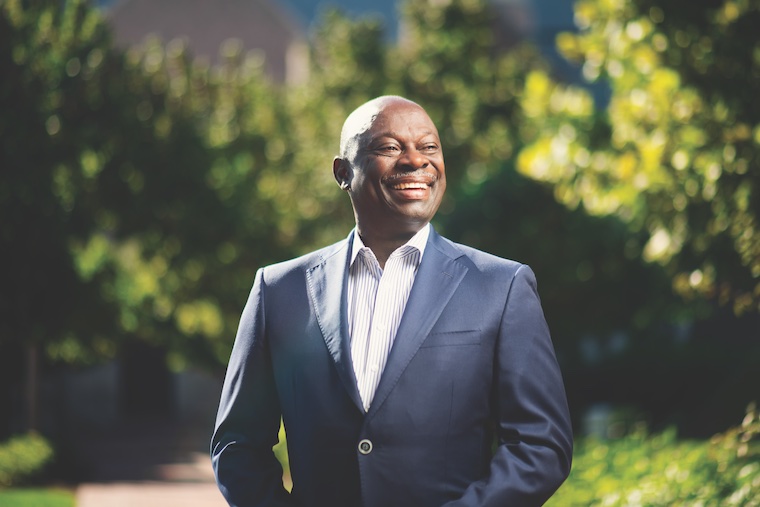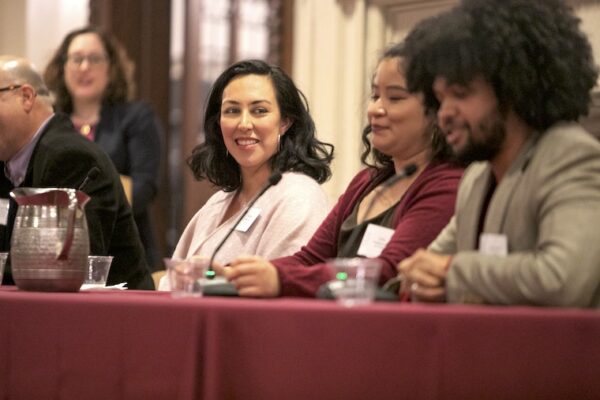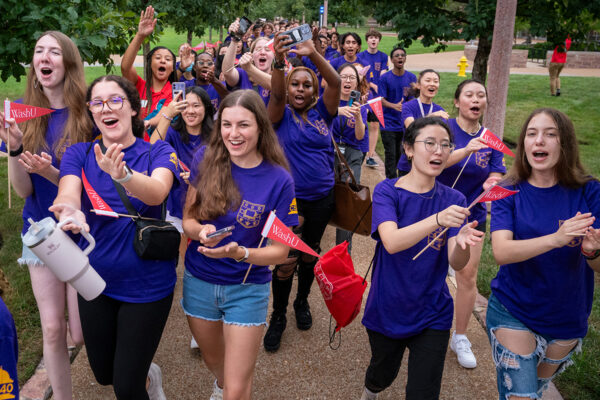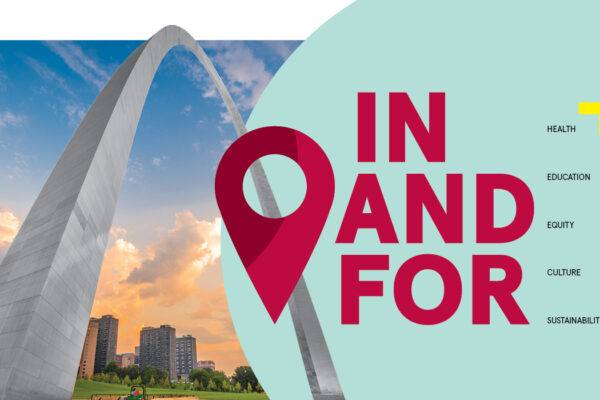When Lawrence “Larry” Thomas, BSBA ’77, picked up a flute recorder at age 6, he did not know how that humble instrument would shape his life’s trajectory. He took up other instruments, mastered multiple genres and, as his skills deepened, settled squarely on the saxophone. The summer before his senior year of high school in Vicksburg, Mississippi, he landed a coveted spot on a band delegation headed to a national convention in St. Louis. His band was housed in the South 40 dormitories, and he fell in love with WashU.
Thomas enrolled the following fall. A strong STEM student, he initially intended to study pharmacology. Over the course of a few terms, however, he was increasingly drawn to applied mathematics–based courses, so he transferred to Olin Business School.
Today, Thomas cites the continuous commitment of key WashU supporters as integral to his academic self-discovery and ensuing professional achievements. Supported through self-doubts, encouraged in his strengths and connected with advocates, he undertook his first steps toward a remarkably successful career at Edward Jones. Thomas served as partner at the St. Louis–based brokerage firm until his retirement in 2021.
As an alumnus, Thomas has remained reciprocally invested in the university. He is a co-chair of the fundraising effort Make Way: Our Student Initiative and is one of the longest-serving voting members of the current Board of Trustees. A consistent scholarship donor for four decades, he encourages others to increase their investments in scholarships. In short, Thomas aims to ensure that every admitted student receives the access and support that primed him for his post-WashU life.
Describe your WashU experience.
I came from an academically challenged state, where I attended public elementary and high schools. The academic piece of WashU was tough. When I think about my experience, it is the people who really helped me along — friends, classmates and some crucial supporters.
There was a fellow who worked in Chancellor Bill Danforth’s office at the time by the name of Ron Jackson, who later served as the executive director of St. Louis for Kids. Ron had been a student at the university, and he was a personal adviser to me. He took me under his wing. When I had some difficulty or questions — either simple or deep — he was my go-to guy. Building relationships with people like Ron really got me through.
Why do you give so much to WashU?
I took an internship class at Olin, and the professor, George Hempel, directed me to three companies where I could apply. Edward Jones was one of them. So I went in for an interview. It was very small then, with just one employee in personnel. She thought I was applying for a night job in the mail room. She sought assistance from the partner, but I got nowhere with the two of them for more than a week.
Impatient, I approached Hempel and let him know about the situation. He made one call to a very senior person he knew well — the late John Bachmann. Hempel said, “Hire this young man.” And Bachmann, who was never at a loss for words, simply said, “OK.” After I graduated, I started at Edward Jones full time, and I worked there my entire career. Bachmann became the company’s managing partner and one of my staunchest supporters.
Naturally, I have a strong investment in Washington University. My advisers not only knew my potential, but they also threw their weight behind me. I want more students to discover the resources, networks and social capital at their fingertips. I want all of them to realize the empowering possibility of this place.
Why is Make Way important?
Make Way helps students come to WashU. It also ensures that they truly connect as I did. Not all students arrive equipped to seek resources or ask for help. They’re suddenly in a place with all this great brainpower, all these great people, and it’s overwhelming. We want our students to be able to engage fully. It’s not only about tuition and room and board.
Among its priorities, Make Way is building support for internships and career development and cultivating student health and well-being. In short, Make Way is proactively preparing more young people for life after graduation. We recognize that many students must be taught to tap into the resources and the community. As I learned, that community is essential to success.



